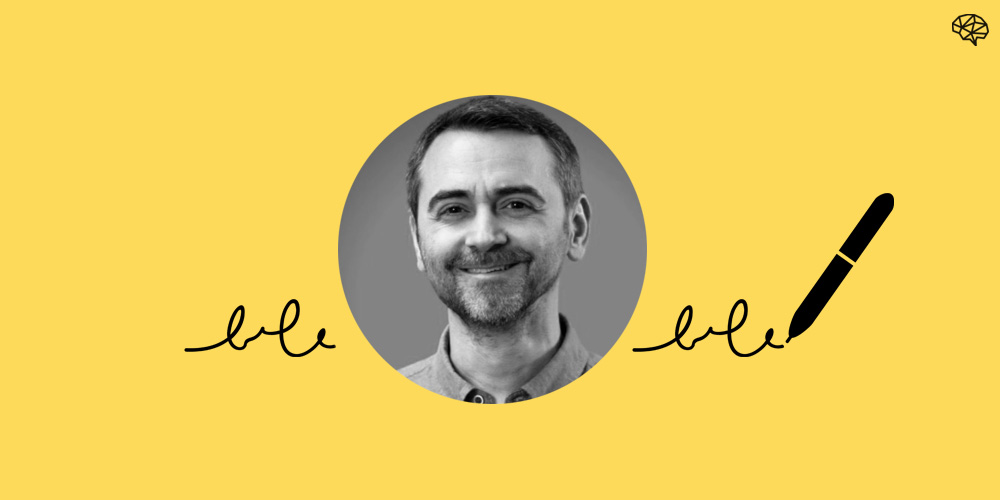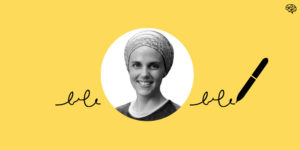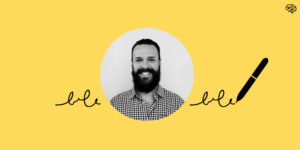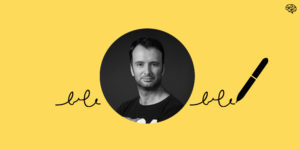I first met Valentin Radu on a podcast interview.
I was invited to speak on the Ecommerce Growth Stories podcast by my friend Juliana Jackson (now at CXL) and ended up chatting with Valentin for an hour about growth strategies, NPS, and some cool things we’re doing at Crossrope.
I’ve been following Valentin ever since on LinkedIn and asked him to participate in my effective leader interview series. Thankfully, he gave me a 👍.
Apart from co-hosting the Ecommerce Growth Stories podcast, Valentin is the CEO & Founder at Omniconvert, a suite of ecommerce CVO tools designed to help marketers and brands thrive in a cookie-less future. He’s also the founder of Omniconvert CVO Academy where he helps marketers become certified in CVO through his teaching of the importance of customer lifetime value.
In this interview, you’ll learn:
- How to use self-interrogation to improve your focus
- A little Chrome plugin to keep your tabs under control
- The three main factors that drive personal growth
Here’s my (short) interview with Valentin:
What does your work routine look like? Describe your typical day.
Wake up without an alarm around 5 AM. Cold shower, meditate, journaling.
Nail the first most crucial thing until 7 AM. Run with my wife if it’s already light outside at that hour. I am commuting, thanking my wife for another strange green fresh juice, and kicking off the day.
Daily meetings with the team + internal meetings + trying to sort out the 2nd most important thing of the day by lunch.
Coping with the email chaos, external meetings, some social media + writing and ungluing myself from the desk to get back home.
What’s your secret to an effective remote work setup?
Giving positive energy via video + bi-monthly all-hands meetings + asking people to deliver results instead of delivering hours + being flexible with everyone’s needs + genuinely caring about the personal goals of my colleagues + sharing the overall progress with everyone + internal newsletter.
What helps you stay focused?
Man, I used a lot of techniques and tools to be able to stay focused.
I have a ton of ideas per life square inch 🙂
Curiosity and creativity can be a curse if you don’t master your monkey mind.
The most impactful moment in my life regarding focus was the 10-day meditation retreat that I made 4 years ago. 13 hours of meditation, no phone, complete silence, I wasn’t even allowed to have a notepad and a pen.
After that experience, I had a lot of great outcomes, but also the realization of how self-observation helps me focus on what matters most.
So, the main things that help me focus:
- Meditation
- Journaling – it allows you to read what you’ve decided to do
- My purpose – the internal pact that I made with myself enables me to calibrate on the present moment and to have an overview of what I should be doing
- Conscious breathing
- Cold showers – Wim Hof’s method is an excellent gift for me
- Self-interrogation – this habit helps you re-connect to the present moment by asking the right questions. For me, asking myself from time to time “what am I doing now? Is this the most inspired, impactful, and important thing that I should do?
- A Chrome plugin called tab-wrangler – automatically keeps only X tabs open – I try to get to a maximum 5 – started with 15 🙂
- Using a little device called Foci.ai – I use it when I need to get into a flow state to create something with no distractions – it allows me to get alerts when I go off rails
- Start the day by doing the main important thing, when my energy is the highest.
Editor’s note on #9: Dave Hale talks a lot about energy levels as well and how to effectively manage your work around them.
What do you do when you’re feeling overwhelmed?
I have many habits to avoid feeling overwhelmed.
The first is floating – we have a Samadhi tank at our office. Blissful experience – it allows me to disconnect and reconnect to what’s essential. Spending too much time in my head in the middle of entrepreneurship & business can be overwhelming.
The second – go having a massage.
The third: daily meditation + journaling.
If you can have a 30-day challenge to write every day about how you feel and see the world, you’ll have a surprise 🙂
It is instrumental to have one.
Last resort: I talk with my wife. She is a psychologist and has a ton of patience and wisdom. She’s always having an out of the box approach and helps me realize how attached or skewed my perspective is.
How do you help your team prioritize effectively?
We’re now using EOS at the company level, we focus on what matters and I try to have the right people at the right place. That saves a lot of friction.
I try to ask questions and to lead by example – if I can help them learn how I make decisions and what algorithm I use, they’ll be able to grow.
I think growth happens due to 3 main factors: asking questions + making decisions + insights. A good environment allows you to experiment and decide for yourself.
How do you strike the right balance between remote work and life?
I use Rescue Time to stop after six productive hours a day + I stop working after 7 PM, I don’t work in weekends, I had an internal pact with myself, and I know that I can be more efficient if I stop working after a certain time.
We’re complex beings; we need other types of activities, emotional & intellectual food – that‘s making us more creative and better at work, as well.
What book or podcast has helped you the most?
“The 7 habits of highly effective people” is the one (here).
That’s the bible for anyone willing to make the most at work. There are a lot of other great books out there. However, this one has stuck to my head for the last 15 years or so.
Share one favorite productivity tool or tip.
Work never stops. The better you work, the more work you attract. So, the idea is to prioritize work and to accept that you’ll never finish it 🙂
As I said earlier, I use Rescue Time and stop after 6h of productive work. I revisit my performance weekly and I use those settings to block distracting websites and apps in my focus time.
Any parting advice for remote workers?
Disconnect at noon.
Don’t eat in front of the computer. Take a walk if you can or have lunch with someone you love. If you can’t, then call someone dear to you every day at noon. It is great to split the day into 2 parts.
**
Thank you Valentin!
You can find Valentin Radu on LinkedIn.
✌




